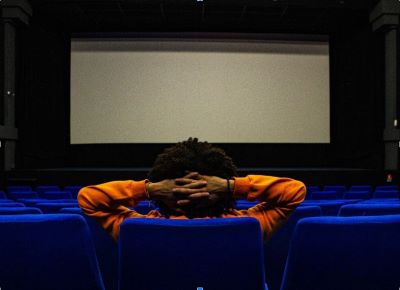Films and the theatre crossing over have long been a common occurrence in entertainment. The likes of Rent, Alfie, and anything written by the Bard see consistent efforts to translate and reimagine no matter the generation. Some might end up like the modern Cats, but the market has proved so welcoming overall that this approach will doubtless continue to prove a source of inspiration.
Of course, theatre isn’t the only form of entertainment to make waves in film. In recent years, the video game market has seen overwhelming success with titles like Sonic the Hedgehog, Mario, and Gran Turismo. As players and theatre enthusiasts, we have to wonder what potential in cross-overs might remain unexplored between these two fields. Could such greater investment pay off, or are the differences too vast to bridge?
Entertainment with Precedent
Crossing over from entertainment to the theatre stage implies some complexities, but it’s not without precedent. Experience from other entertainment mediums, like that of bingo gaming, has demonstrated that, with popularity, translation is possible. Bingo has worked so well in titles like Bingo! and Bingo with the Indians because it’s so well known. The best bingo app available today keeps expanding on the classic idea, using convenience and related games like slots to drive public understanding. This convenience of desktop and mobile forms of play acts as the core of spreading appreciation, and gaming has long taken similar routes.
Early efforts in translating video games to the theatre have seen some first steps in titles involving Pac-Man, Mario, and Mortal Kombat. While niche, the success of these efforts shows that gaming could make the jump, with some alterations to the key formula. You might not see a character in a Mortal Kombat stage play rip out a person’s spine, but the judicious use of ribbons and confetti can still relay the bombastic effect. Since translation provides experimentation, there’s a lot of room to work with in interpreting different aspects of a game and its story.
A Matter of Control
Standing in the way of making a great game-to-stage conversion is the same issue that gaming faces when moving to film or television; it’s an active experience. While some modern games find fame through story, it’s the gameplay that drives them, as the player becomes an active participant. Theatre is almost always an entirely passive experience, so it needs to find a way to address the elephant in the room.
This complication means that should plays about games become more popular, they’ll require an in-depth understanding of the world beyond the playable. The meta aspects of a title, its memes and community, its successes and foibles, all of these components require balance for a release to be a worthwhile effort. It’s something the film industry has often missed the mark on, but there is hope.
Playwrights today are increasingly of a generation that grew up in the era of video games. This understanding provides better odds that anyone adopting gaming properties can do them real justice. Instead of the original Mario movie, we might end up with releases more like the modern Mario film, and that’s an exciting prospect. The stage is ripe for exploration in bringing these two mediums of gaming and theatre together, and the potential on the horizon makes us excited to see what comes next.

